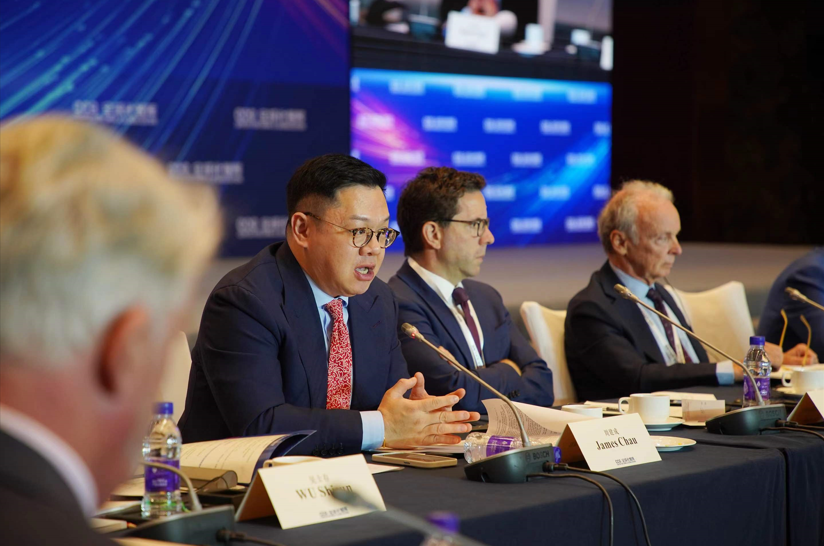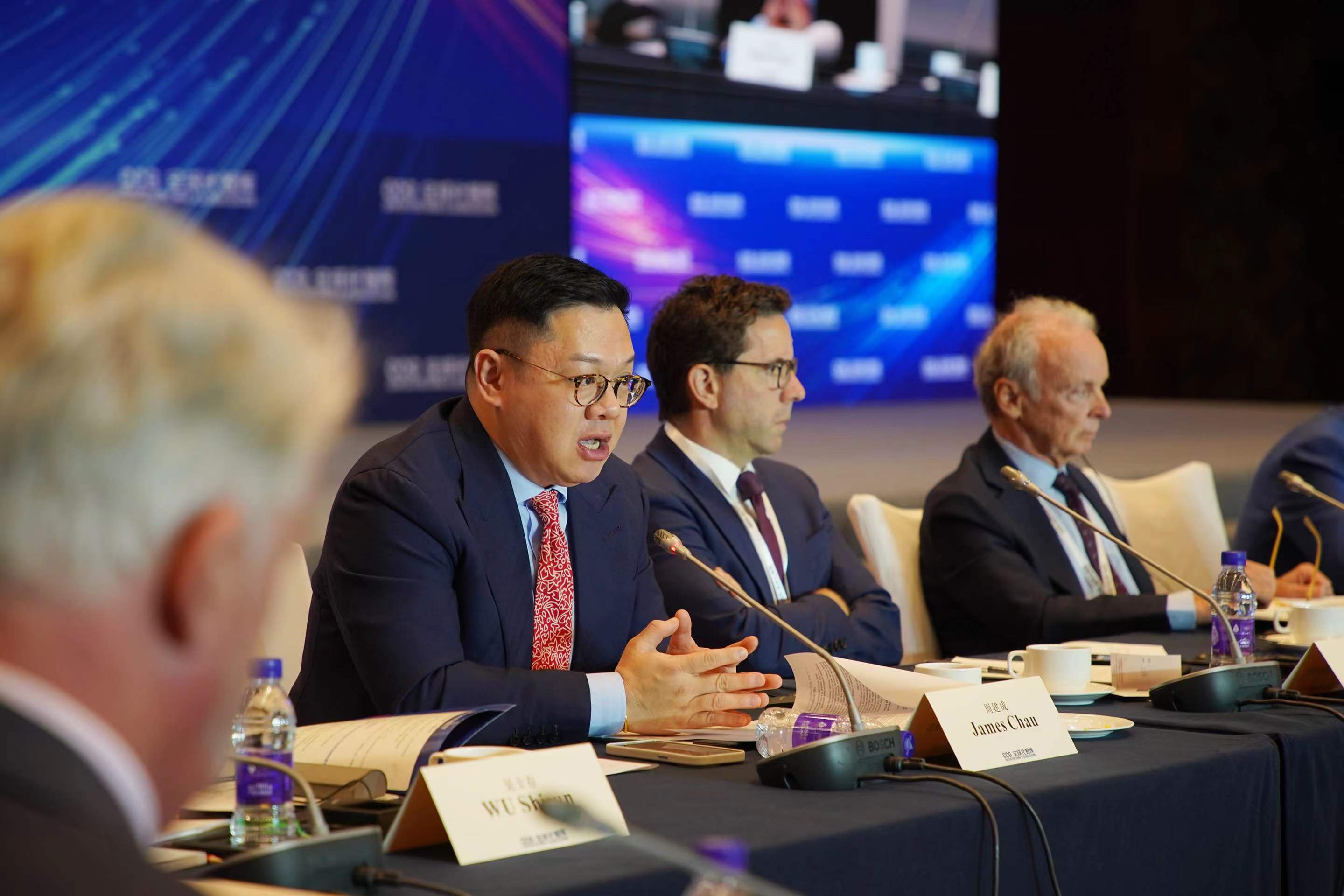(May 25, 2024, Beijing) The 10th China and Globalization Forum, co-organized by the China- United States Exchange Foundation (CUSEF) and the Center for China & Globalization (CCG), opened in Beijing today. The Forum features a renowned lineup of government officials, foreign diplomats, think tank leaders, business executives, and academic experts.
The annual China and Globalization Forum, launched by CCG in 2015, draws the most highly regarded delegates for dialogue and debate on the urgent issues in global politics and business, as well as China’s place in the world.
Over the course of two days from May 25-26, the Forum will host eight engaging panel discussions delving into a variety of important themes including China-U.S., China-EU, and China-Middle East relations, developments in artificial intelligence, and China’s critical demographic challenges.

James Chau, President of the China-United States Exchange Foundation (CUSEF), delivered a welcome speech at the opening session, and will also moderate “Sino-U.S. Roundtable – A brighter future? Implications of the bilateral relationship for global cooperation.”
Echoing the ‘Bali Consensus’ and ‘San Francisco Vision’ reached by the presidents of the U.S. and China, the Sino-U.S. Roundtable invites renowned experts on China-U.S. relations to analyze the trends in the U.S. presidential election, the possible election of former President Donald Trump and its impact on the U.S.-China relationship and international cooperation, and suggestions for China’s response.
2024 marks the 45th anniversary of the normalization of U.S.-China diplomatic ties. This year also coincides with leadership changes in the U.S. and the European Union parliament, and is a critical moment for China to implement its “14th Five-Year Plan.”
President Trump’s possible comeback, the rise of the right wing in Europe, the stalemate in the ongoing conflict between Russia and Ukraine, and the expansion of the war in the Middle East, raise new questions about the future of the global order.

James Chau speaks at the opening roundtable ‘Rethinking globalization and global governance: Silver linings in the dark clouds.’
James Chau said he believes that the U.S. and China should take the lead role in promoting and cooperating in the process of globalization, especially in the time of unprecedented global challenges.
“Forces for deglobalization, decoupling, and disengagement are rising across all corners of the world. The more we each recede and entrench within our borders, the more we are creating the very reality we are scared of,” said James Chau.
He also offered three suggestions on how to deal with these major challenges facing the world:
- when things seem difficult, taking small steps can make a big difference;
- we must engage with those with different views than ours;
- we all have the power, and the responsibility, to be active participants in shaping a better tomorrow.
James Chau urged everyone at the Forum to consider concrete steps, both individually and collectively, to transform dialogue into actionable solutions that benefit the global community.
The Forum’s opening session also featured keynote speeches from the following individuals: China’s Special Representative on European Affairs Wu Hongbo, Director of China Center for Contemporary World Studies Wang Liyong, Vice President of China International Communication Group and President of Academy of Contemporary China and World Studies Yu Yunquan, Chair of Governing Board of European Policy Center Declan Kelleher.
_____________
About the 10th China and Globalization Forum
Over the course of two days from May 25-26, the Forum will host eight engaging panel discussions delving into a variety of important themes including China-U.S., China-EU, and China-Middle East relations, developments in Artificial Intelligence, and China’s critical demographic challenges, including:
- Opening roundtable – Rethinking globalization and global governance
- EU-China thank exchange: EU-China relations in the light of elections: What’s next?
- Special panel – Global talent mobility and governance
- Special panel – Global business districts: Innovation and development
- Ambassadors’ roundtable – Reimagining multilateralism for a multipolar world
- Special roundtable – Navigating geopolitical uncertainty: Business strategies for global trade reconfiguration
- Sino-US roundtable – A brighter future? Implications of the bilateral relationship for global cooperation
- Climate roundtable – Shaping the future: Global governance of climate and nature
- Special forum – China and the Middle East in a multipolar world: Myths and realities
Panel 1: Resolution of the Israel-Palestine conflict
Panel 2: A peaceful, prosperous, stable nuclear free Middle East for all: Possible?
Panel 3: Independence and sovereignty: Outside interference, status, regulation, and role of non-state actors
_____________
About the China-United States Exchange Foundation
The China-United States Exchange Foundation (CUSEF) is an independent non-governmental organization committed to improving the global well-being through the fulfilled potential of the world’s two leading economies. For 15 years, CUSEF has made progress on that vision by facilitating exchange for more than 2,000 American and Chinese students selected from the world’s leading universities; communicating expertise and thought leadership to the three million people who follow its digital content; and creating programs and partnerships with The Carter Center, George H.W. Bush Foundation, One Young World, among others. Its honorary advisors include the late Dr. Henry Kissinger, 56th U.S. Secretary of State; Mr. Robert Rubin, 70th U.S. Secretary of the Treasury; and Mr. Tang Jiaxuan, former State Councilor and Foreign Minister of the People’s Republic of China. CUSEF was founded in 2008 by The Honorable Tung Chee-hwa, First Chief Executive of Hong Kong.
